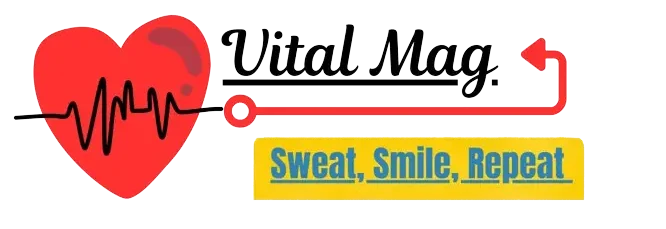Building muscle is a common fitness goal that improves one’s physical appearance, overall health, and athletic performance. To accomplish this goal, a key strategy that incorporates appropriate nutrition, effective preparation, and satisfactory recovery is required.
Quality preparation is essential for accelerating muscle growth, particularly through compound exercises like squats and seat presses. A modified diet that is lower in protein, carbohydrates, and healthy fats supports muscle repair and development. In a similar vein, ensuring that muscles get enough rest to recover and grow is crucial.
By setting clear goals, orchestrating a coordinated exercise, and maintaining consistency, individuals can effectively fabricate muscle. In addition, monitoring progress and making necessary adjustments can assist in achieving desired outcomes. This all-encompassing strategy not only contributes to muscle growth but also improves long-term fitness and well-being.
Importance Of Wellhealth in Building Muscle Tag
Building muscle goes beyond lifting weights and eating more protein. Well-health, which envelops a holistic approach to nourishment, physical well-being, mental well-being, rest, recovery, and hydration, plays a crucial part in accomplishing your muscle-building objectives. Here’s why well-health is vital and how you’ll be able to coordinate it into your wellness regimen successfully.
Optimal Nutrition
Optimal nourishment is the foundation of muscle building. A balanced calorie count provides the basic nutrients required for muscle repair and development. Protein is especially vital because it supplies the amino acids fundamental for muscle tissue repair.
Carbohydrates fuel your workouts, giving the vitality required for high-intensity preparation sessions, whereas sound fats bolster hormone generation and, generally, cellular well-being. Guaranteeing you consume an assortment of natural products, vegetables, whole grains, and lean proteins will assist you in meeting your macronutrient and micronutrient needs, making an environment conducive to muscle development.
Physical Well-being
Physical health incorporates standard strength preparation and legitimate activity strategies. Squats, deadlifts, and bench presses are examples of compound exercises that target multiple muscle groups and encourage overall muscle growth.
Guaranteeing legitimate structure and method amplifies exercise adequacy and limits the risk of injury. Integrating adaptability and portability practices into your standard improves your scope of movement and forestalls wounds. By keeping a fair and balanced wellness routine, you make areas of strength for muscle improvement and generally actual well-being.
Mental Health
A person’s mental health is an essential part of a successful muscle-building journey. Having a positive mindset and mental resilience makes maintaining motivation and consistency in your workouts easier.
Practices like mindfulness, meditation, and stress management can significantly impact your capacity to adhere to your fitness plan. Relaxation techniques help improve recovery and muscle growth by reducing stress. Encircling yourself with a strong local area or exercise accomplice enhances your inspiration and responsibility, making your muscle-building venture more pleasant and maintainable.
Rest and Recovery
Building muscle needs recovery and rest. Rest days give your body time to recover from intense workouts, and getting enough sleep lets your muscles heal and grow. Overtraining can cause injuries and disrupt muscle growth, so it’s important to take care of your body and incorporate rest days into your daily routine.
Engaging in dynamic recuperation exercises like walking, yoga, or light extending can help you maintain your health without putting additional strain on your muscles. If you provide rest and recovery, you will be able to plan consistently and successfully over the long term.
Hydration
Despite being an essential component of muscle building, hydration is frequently neglected. Remaining hydrated further develops exercise execution by keeping up with energy levels and helping supplement transport to muscles.
Hydration is important for overall health, muscle repair, and reducing soreness. To stay hydrated, drink water before, during, and after exercise. Electrolyte-rich beverages can also help replace minerals lost through sweat, keeping your body in peak condition for muscle recovery and growth.
Mistakes To Avoid

Here are five mistakes that you should avoid:
Neglecting Proper Nutrition
Proper nutrition is foundational to muscle building. With satisfactory caloric admissions, your body will have the essential vitality to construct muscle. Protein is important for building and repairing muscles, so make sure to include plenty of protein-rich foods in your diet.
Carbs give the imperativeness expected for emphatic exercises, though fats are fundamental for chemical age and overall prosperity.
Additionally, supplement timing can improve muscle recovery and growth by consuming protein and carbohydrates in conjunction with workouts. Hydration is key; water is indispensable for all genuine limits, including muscle withdrawal. Lastly, to support your dietary requirements, think about taking supplements like creatine or protein powder.
Tips:
Inconsistent Training
Consistency in your training regimen is essential for muscle building. Skipping exercises can disturb your progress and make it harder to plan an everyday practice. With a well-organized plan, you can target all muscle groups and gradually increase the weight or resistance.
If you don’t have a plan, you might do random exercises that don’t help you build muscle healthily. Altering your workout routines can also help you stay motivated and avoid plateaus. Consistency also means giving your muscles time to recover, so make sure to include rest days in your routine and prevent overtraining.
Tips:
Poor Form and Technique
Utilizing appropriate structure and technique during exercises is fundamental to forestalling wounds and boosting viability. Unfortunate structure can prompt strains, injuries, and more extreme wounds that can sideline your advancement. It additionally lessens the proficiency of your exercises, meaning you won’t focus on the planned muscles accurately.
Ego lifting, also known as lifting weights that are too heavy, frequently leads to poor form and an increased risk of injury. Maintaining good form can be helped by warming up before your workout and focusing on controlled, deliberate movements. If you’re not sure how to do something, you should talk to a personal trainer for advice.
Tips:
Overtraining
When you don’t give your muscles enough time to recover between workouts, you’re overtraining. Burnout, injuries, and slowed progress are possible outcomes of this. Rest days must be included in your training schedule because muscle growth does not occur during workouts.
Rest is a basic part of recovery; go for the gold hours out of each night to guarantee your body has sufficient opportunity to fix and develop muscle tissue. It is essential to listen to your body; if you are experiencing excessive tiredness or soreness, it may indicate that you require additional rest.
Tips:
Lack of Patience
Muscle building is a slow, steady process that requires perseverance. Various people expect fast happen and have the opportunity to be deterred when they don’t see brief changes. Understanding that muscle growth takes time can help you control your desires and stay motivated. Additionally, comparing your progress to that of others can result in disappointment because everyone’s body responds unexpectedly to preparation. Instead of focusing on dramatic changes, celebrate small milestones and concentrate on gradual progress. Keeping track of your progress in a workout diary can give you a sense of accomplishment and refuel your determination.
Tips:
Benefits Of Building Muscles
There are several benefits of building muscles:
Risks During Building Muscles

Muscle Recovery Tips
Conclusion
Muscle building is a comprehensive health goal that improves appearance, well-being, and athletic performance. For success in this endeavor, a well-balanced approach to nutrition, preparation, recovery, and overall health is essential.
Essential parts consolidate compound exercises. , genuine structure, and a diet high in protein, carbohydrates, and healthy fats. Rest and recovery are also important because they allow muscles to relax and develop.
Mental health, which includes stretch management and a positive outlook, greatly aids consistency and motivation. It’s easy to forget how important hydration is for exercise performance and muscle repair.
Maintaining a strategic distance from common mistakes like inadequate nutrition, conflicting training, inadequate form, overtraining, and restlessness is essential for effective muscle building. In like manner, this sweeping methodology, not so to speak, engages muscle advancement but rather too long haul health and prosperity.
FAQs
How often should I work out to build muscle?
Aim for 3-5 times a week.
What are the best exercises for muscle growth?
Compound exercises like squats, deadlifts, and bench presses.
How much protein do I need daily?
Typically 1.2-2.2 grams per kilogram of body weight.
How important is rest in muscle building?
Crucial: muscles grow during rest periods.
Should I take supplements?
They cannot help but focus on a balanced diet first.
How long does it take to see results?
Usually 4-8 weeks with consistent training and diet.
Can I build muscle without weights?
Yes, using bodyweight exercises and resistance bands.
Is cardio bad for muscle building?
No, but balance it with strength training.
How do I avoid overtraining?
Incorporate rest days and listen to your body.
What’s the role of hydration in muscle growth?
Essential for overall health and optimal muscle function.

